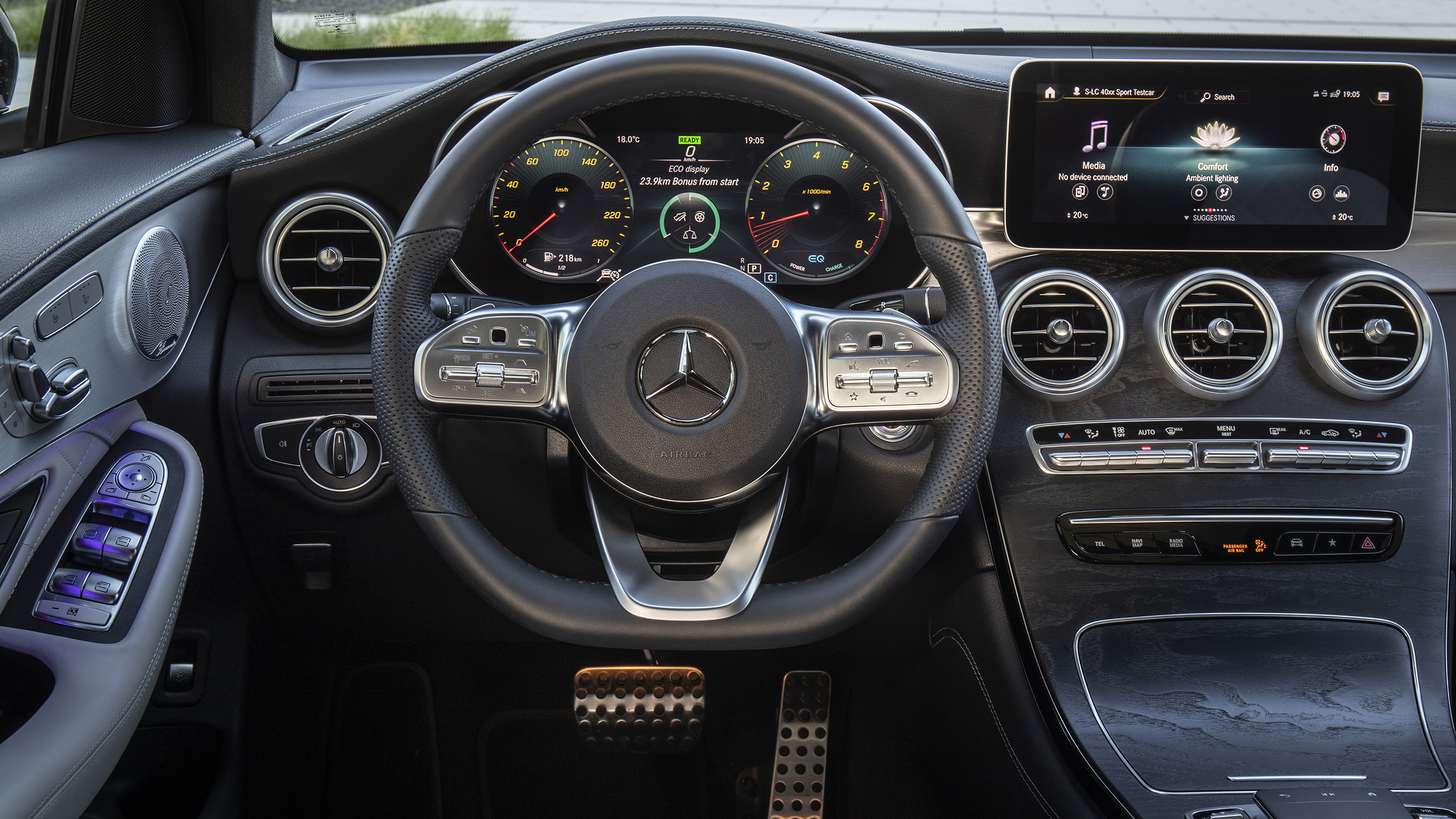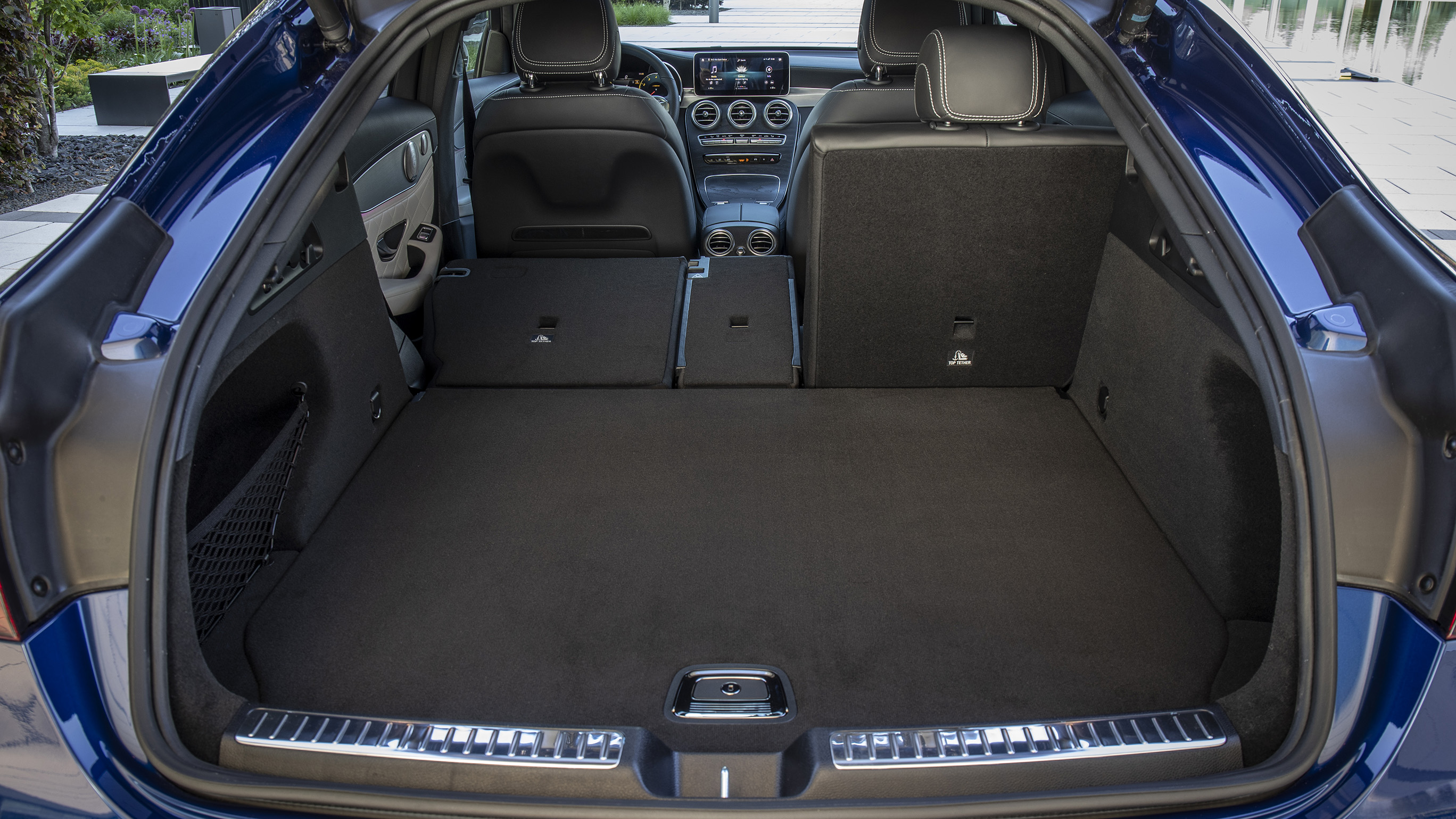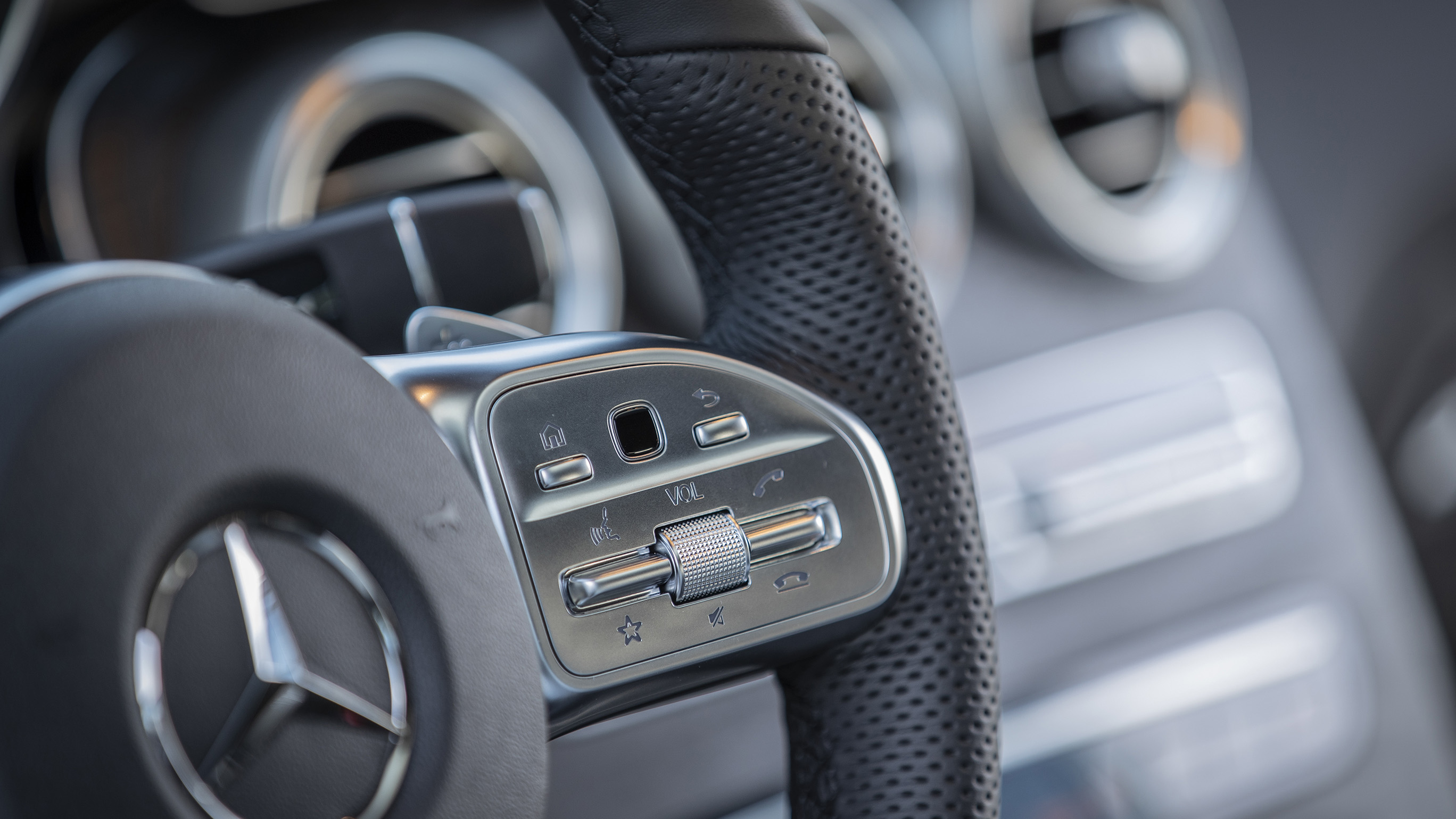
Buying
What should I be paying?
Stick with the diesels and the GLC’s running costs aren’t at all unpalatable: you’ll get a real-world 40mpg unless your car is marooned in city life and the 220d model only incurs £210 of road tax. Upgrading to the quicker GLC 300d ups that to some £530 even though the CO2 output is a quoted 159g/km instead of 145g/km. If you can do without that bit of extra overtaking punch, the 194bhp GLC 200d is a smart buy.
Been thoroughly put off diesel by its (somewhat unfairly) besmirched reputation? You’ll be more interested in the petrols then. We’ve tried the GLC 300, which develops 255bhp, with a 14bhp leg-up from an ‘EQ Boost’ electric motor helping mask turbo lag and smooth out engine stop-start. The GLC 300 outpunches the GLC 200 by some 60bhp (it has 254bhp), and if you can tolerate the rather synthesized engine note and economy cresting at 30mpg, it will keep some junior hot hatches honest in a straight line.
Much as it’s incongruously entertaining to plumb such a keen engine into a fundamentally normal SUV, our choice would be the GLC 220d. If you’re buying on PCP as the majority of customers will, you’re insulated from the devaluing of diesels and might end up that bit smugger when you’re stopping half as often as a petrol equivalent to fill the tank.
Higher powered versions unlock AMG Premium Plus and AMG Line Ultimate trim, which adds extras like a Burmester hi-fi with beautiful intricate speaker grilles, keyless go, and electric memory seats. For driving in the UK’s congested cities and contra-flow-ridden motorways, we’d recommend the £1,695 Driving Assistance Package, for its active steering and blind-spot helpers. It’s by no means an autonomous car, but the safety net is a welcome one.
Featured

Trending this week
- Car Review
BMW iX3






